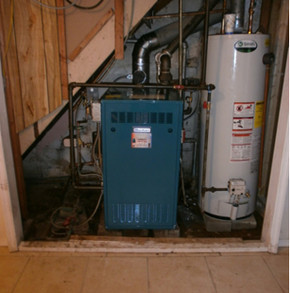Factors That Affect Boiler Installation in Staten Island and Manhattan
- Simone Arnica

- Aug 13, 2025
- 4 min read

Boiler installation whether it is in Staten Island or Manhattan, it is never a one-size-fits-all project. One can come across various dwellings, historic brownstones, modern high-rises, and cooperative buildings, each with its own features. A new boiler installation in Staten Island or Manhattan in these buildings comes with its own share of challenges. Beyond choosing the right equipment, homeowners must consider ventilation, space, building type, and local regulations that make New York different from many other places.
Key Considerations for Boiler Installation in Staten Island and Manhattan
If you’re planning to install a boiler in either your Staten Island or Manhattan home, here are the key factors to keep in mind.
Building Type: Co-op, Condo, Brownstone, or Rental
The type of building you live in often determines the choice of boiler.
Co-ops and Condos:
In co-op or condo buildings, decisions about boiler installation are often made by the board or building management. You may not have complete control over what system is chosen, and approvals can take time. In-unit boilers may be restricted due to shared infrastructure.
Brownstones:
These historic buildings often rely on individual boilers or steam systems. However, retrofitting a modern boiler into a brownstone can be tricky due to older piping and limited space. Careful planning ensures efficiency without compromising the building’s historic character.
Rental Properties:
In rental units, landlords are responsible for providing heat. Tenants generally can’t choose their own boilers, but landlords must ensure the system complies with New York heating requirements, especially during “heat season” (October to May).
Ventilation and Chimney Requirements
Proper ventilation is essential for boiler safety and performance. Boilers release combustion gases that must be vented outdoors. In older buildings with chimneys, the flue may need to be relined or upgraded to meet safety codes.
For modern high-efficiency condensing boilers, a chimney may not be necessary, but direct-vent systems require carefully designed exhaust and intake pipes. In New York, where buildings are often close together, finding appropriate venting locations can be a challenge. Improper venting can lead to safety issues and delays in project approval.
Space, Noise, and Accessibility Concerns
Space is at a premium in State Island or Manhattan, which directly impacts boiler installation.
Space: Many apartments and brownstones have tight basements or mechanical rooms. The boiler must physically fit into the available area, and there must be clearance for maintenance and repairs.
Noise: While modern boilers are quieter than older models, noise can still be a concern in multi-family buildings. Ensuring the system operates quietly helps avoid neighbor complaints, especially in co-ops or condos with strict noise rules.
Accessibility: Contractors must be able to transport the boiler into the building. Narrow staircases, small service elevators, and cramped basements are common obstacles in NYC installations.
NYC-Specific Permitting and DOB Regulations
New York City has strict rules for boiler installation, overseen by the Department of Buildings (DOB).
Permits: A permit is typically required for new boiler installations, significant replacements, or changes to venting systems. Licensed plumbers or HVAC contractors must file permits with the DOB.
Inspections: Once installed, boilers often need to be inspected and approved before use. Annual inspections are also required for many systems.
Emissions Regulations: NYC has regulations to limit emissions, particularly from oil-fired boilers. Switching to natural gas or cleaner fuels may be necessary to comply with local laws and other environmental rules.
Failing to follow proper permitting and regulatory procedures can result in fines, delays, and even legal issues.
Frequently Asked Questions about Boiler Installation
1. Is it Possible to Install a gas boiler in a Manhattan or Staten Island apartment?
Yes, but it depends on the building’s infrastructure and board approval. In many apartment buildings, gas boilers are part of a central system managed by the building. Installing an individual gas boiler inside an apartment is often restricted due to venting and safety concerns.
2. Is a Permit Required to install a boiler?
In most cases, yes. The NYC Department of Buildings requires permits for boiler installations, particularly if it involves gas lines, venting changes, or replacing large systems. Always work with a licensed contractor who can file the necessary paperwork.
3. What size boiler does one need for a 2-bedroom NYC apartment?
Boiler sizing depends on square footage, insulation, and heating load. A typical two-bedroom apartment might require a boiler in the 50,000–80,000 BTU range, but exact sizing should be determined by a professional heat load calculation to avoid inefficiency.
4. Is steam or hot water boiler better in New York buildings?
Steam boilers are common in older NYC buildings, particularly brownstones and pre-war apartments. They provide strong, even heat but are less efficient. Hot water (hydronic) boilers are more common in newer buildings and offer better efficiency and zoning options. The choice often depends on the existing system and budget for upgrades.
Boiler installation in Manhattan or Staten Island is shaped by more than just the choice of equipment—it’s about navigating the city’s unique building types, space limitations, safety codes, and regulations. Whether one lives in a brownstone in Staten Island, a condo in Manhattan, or a rental in Queens, the right boiler system must balance efficiency, compliance, and practicality. Before a new boiler installation, consult a licensed HVAC contractor who understands local requirements.














Comments